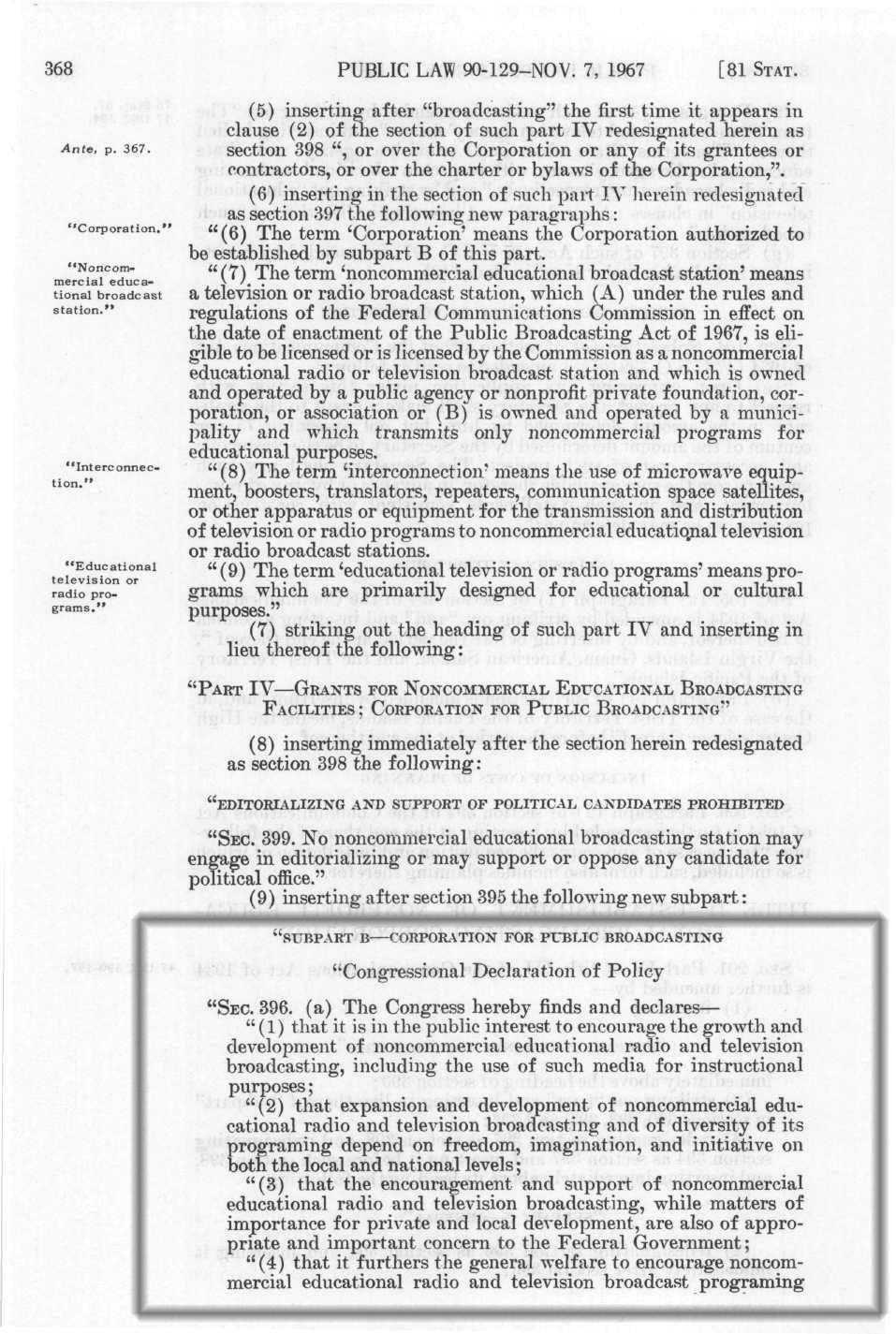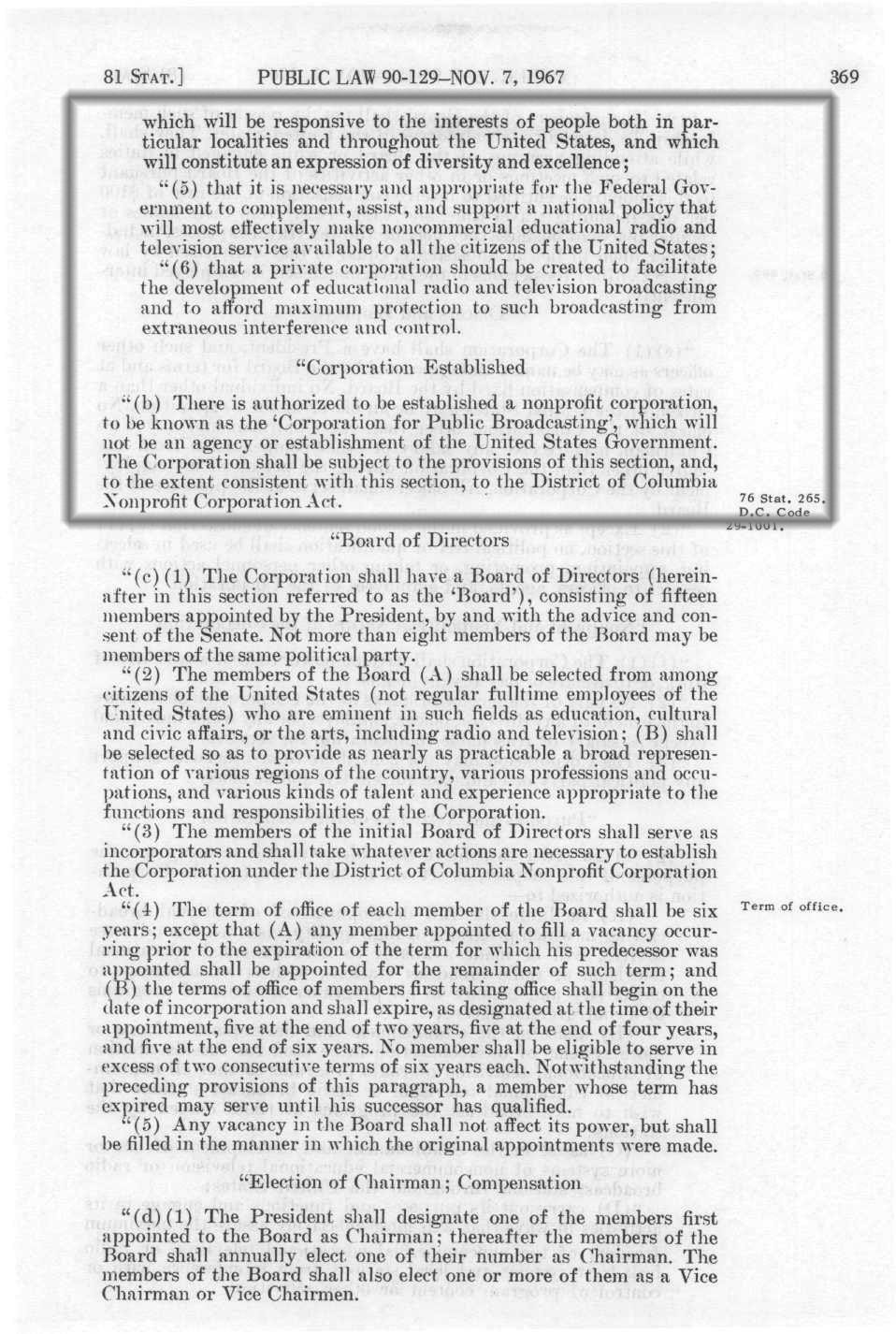Politicizing Public Broadcasting and What We Stand to Lose
The Corporation for Public Broadcasting Reaches 99% of the U.S. Population
Last week, President Trump signed an executive order demanding that the Corporation for Public Broadcasting (CPB) eliminate funding for PBS and NPR, the free-to-air television network and the public radio syndicate respectively.
In the first few paragraphs of the executive order, the Trump administration makes the argument that CPB should no longer fund PBS and NPR because they don’t provide “nonpartisan” and “unbiased” news coverage. According to President Trump, taxpayer-subsidized federal funds should not be used to support what he calls “biased” media coverage. Also, really quickly: it costs a taxpayer in the United States $1.60 per year to support CPB. Thats right—$1.60.

There’s so much context to provide here, and I almost don’t know where to start. I work for an NPR-affiliate public radio station in the Bronx and I didn’t know half the things I learned this week about CPB, PBS and NPR. If I—a public radio employee—didn’t know these things, I think we need to get into it.
So, let’s just start at the beginning, I think.
What even is the Corporation for Public Broadcasting?
On November 7, 1967, President Lyndon B. Johnson signed the Public Broadcasting Act into law.
You can check out the exact text in the photos below, but I’ll also sum it up for us:
Congress decided that it was in the public’s best interest to have access to free noncommercial public radio and television and that those institutions should provide education and knowledge in the form of diverse programming that represents the entire country. They also decided that the federal government should do everything in its power to make sure every person across the United States has access to that radio and television.
In order to do this, they established the ‘Corporation for Public Broadcasting.’ The goal: develop this noncommercial television and public radio.
The Corporation for Public Broadcasting was also established to do something else:
“to afford maximum protection to such broadcasting from extraneous interference & control.”
What happened next was extraordinary.
The Corporation for Public Broadcasting incorporated, launched the Public Broadcasting Service (PBS), connected 150 local television stations across the country and then created National Public Radio (NPR).
We might take it for granted, but PBS and NPR have aired, launched and created some of the United States’ most beloved public programs. PBS gave us Mister Rogers’ Neighborhood, Sesame Street, Frontline, Reading Rainbow and countless political debates. NPR has been home to All Things Considered, Morning Edition and StoryCorps. Every single one of these programs is accessible for free across the country, no matter who you are or where you live. In fact, the CPB system now reaches 99% of the U.S. population with free education, services and emergency alerts via PBS and NPR affiliate stations.

The Corporation for Public Broadcasting supports PBS and NPR by providing them with federal funding. This executive order signed by President Trump could eliminate that funding, and put these stations at financial risk. This would mean people in the United States could lose access to free educational programming and emergency services provided by PBS and NPR.
According to President Trump, PBS and NPR shouldn’t receive federal funding. A White House article published on April 14th of this year even goes as far to say:
For years, American taxpayers have been on the hook for subsidizing National Public Radio (NPR) and the Public Broadcasting Service (PBS), which spread radical, woke propaganda disguised as “news.”
The letter goes on to refer to stories about race, gender and trans visibility as trash. But like we learned earlier, PBS and NPR have a duty to provide education and knowledge in the form of diverse programming that represents the entire country. That includes stories about race, gender and trans visibility, whether the president likes it or not.
No president—of any party—should be able to dictate what stories public media organizations tell, as long as they’re truthful, ethically reported and continue to reflect the country. Also, according to the Public Broadcasting Act of 1967 that we talked about earlier, the government has a responsibility to provide “universal service” to the American public.
Let’s not forget that 99% statistic I mentioned before—today, CPB reaches 99% of the U.S. population with free programming and services.
Many of those communities are rural, and those public television and radio stations are an integral part of the cultural fabric.

PBS and NPR have helped provide citizens with essential information for decades.
Here’s a recent example of how Blue Ridge Public Radio (the NPR station that serves Western North Carolina) recently provided residents with invaluable information during Hurricane Helene.
Given the unequivocal civic benefits of CPB, PBS and NPR, it seems that President Trump is acting out a personal vendetta in real time. After all, he does have a history of undermining the media: see this story from 2019 that tracked Trump’s tweets ridiculing everybody from individual journalists to corporate news institutions.
Trump is responsible for popularizing and normalizing the phrase, “fake news” and has referred to the press as “the opposition party” and “an enemy of the people.” As I was writing this post, Trump tweeted the following about Fox News Anchor, Howie Kurtz, which just goes to show that no journalist or news organization is insulated from the president’s rancor.
It is time for Howie Kurtz to retire! Every Woke Anchor in the Business, people that no one watched from CNN, MSDNC, and others, are plastered all over his show, with all really negative and fake statements, and then I am weakly “defended” by Howie and his group (although Ben Domenech has been strong!). The case Howie makes for me is so pathetic that it would be a lot better if he didn’t say anything. Anyway, that’s the way it is!
Not for nothing, but Joseph Stalin—the former Leninist dictator of Russia—referred to dissidents, those who didn’t agree with him and newspapers as the “enemy of the people.”
According to the Library of Congress, under Stalin: “suppression of newspapers, initially described as a temporary measure, became a permanent policy.1
Other dictators have also tried to control the press like Mao Zedong, Pol Pot, Juan Perón, Augusto Pinochet and Vladimir Putin.
All this to say, suppressing the media is bad. History does not look fondly on it. Suppressing free, public media that only costs the taxpayer $1.60 per year, especially when it might be a lifeline for that community, is worse.
If you want to learn more about public media and why it matters, check out Protect My Public Media.
I’m so grateful for my job in public media—here’s a picture to prove it.
I hope my job, and the incredible work of other public radio and television journalists, is around for many years to come.
Stay tuned,
Meg-of-all-trades
The Library of Congress. “Internal Workings of the Soviet System.” Revelations from the Russian Archives. 04 May 2025, https://www.loc.gov/exhibits/archives/index.html.







Thank you for this piece. It has been wonderful to reminisce. There was so much more to the existence of Public Broadcasting than I ever knew. I have been a PBS supporter and NPR listener all of my life! As a teen, Julia Child and Graham Kerr inspired me in cooking! LOL, If anyone is crazy enough to watch, there is a video of me presenting a batch of Texas Short Rib Stew on CLE OH CH 25. I was 15 when I tuned in for Lilias Folan - my first yoga teacher! Often, I would tune in for the artists to be mesmerized by their talent. How quickly I learned that this was a skill I could admire but would never master. As a mother I relied on PBS at home for Mister Rogers, Sesame Street, Reading Rainbow, Carmen Sandiego, Curious George, and more... No car ride was complete without NPR. I learned so much from Click and Clack at Car Talk, Fresh Air, Morning Edition, Talk of the Nation, Splendid Kitchen, Science Friday and more!
Today, I get my news from NPR via 1A, Fresh Air, On the Media, Here and Now and more, so that I can be properly informed. Radio as a medium allows me the perfect guardrails to news over-saturation. I can listen as needed knowing I can trust the information being presented. I cherish every minute of my 53 years enjoying Public Broadcasting! I am so proud of the work you are doing:)
Thank you for instilling all the best values in me, mama! I loved all our shared moments watching PBS and listening to NPR in the car. All of it made me a more curious, engaged, thoughtful person and citizen. I learned from the best—you!